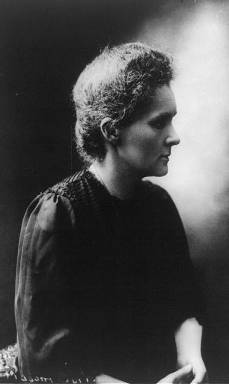In a recent essay in the Wall Street Journal, “What Could Be Lost as Einstein’s Papers Go Online,” Walter Isaacson wondered whether people will still visit the physical archives once everything is digitized and goes online.
Recalling his own research visits to the archives at CalTech and his journey to Jerusalem’s Hebrew University, Isaacson wrote somewhat wistfully of how looking at the original letters and documents and spending time with the editors of The Collected Papers of Albert Einstein gave him insights that led to his biography of Einstein. A similar experience inspired him on his biography of Benjamin Franklin, when he worked with the editors of the Papers of Benjamin Franklin and visited Sterling Library at Yale to look at the Franklin’s letters and manuscripts.
Now the Digital Einstein Papers and the Franklin Papers—through Founders Online—are freely available to people all over the world. They can find these sources, do the kind of research they want to do, and explore on their terms. But Isaacson wonder how that online access will change the nature of research in archives. “What sublime experiences will researchers miss if they simply view the documents online?” he asks. “What will be lost if the archives, with their passionate staffs, morph into unvisited repositories?”
And then, he answers his own questions: “But my brooding soon gave way to marveling about the benefits that will come when millions of curious people, with new technologies in hand, get to dive into the papers of historical figures.”
Online access to historical documents is changing not only scholarly research, but changing our everyday connection with

archives. Just after the release the Digital Einstein Papers, several of my Facebook friends posted links to a 1911 letter from Einstein to Marie Curie expressing his dismay with the “base manner in which the public is presently daring to concern itself with you.”
He was offering some support after Nobel Laureate Curie’s application to the French Academy of Sciences had been turned down. Perhaps because she was Jewish, perhaps because she was having an affair with another scientist, the physicist Paul Langevin. Einstein didn’t care. He said, “Anyone who does not number among these reptiles is certainly happy, now as before, that we have such personages among us as you, and Langevin too, real people with whom one feels privileged to be in contact.” (Einstein Papers, vol. 8, English Supplement p. 6) This defense resonates today for my friends who have faced their own difficulties as women scientists or who were horrified as women who are game developers went into hiding this fall after being the subjects of the death threats this fall.
Another use for these online collections is to focus on the lesser-known historical figures whose stories are begging to be told. Jill Lepore’s Book of Ages: The Life and Opinions of Jane Franklin, (2013) creates a biography of Benjamin Franklin’s youngest sister out of their correspondence in the collection. Jane’s letters appear in Founders Online, but these are not the only sources that Lepore relied on to put together her book. She brought together multiple resources and speculation on the nature of biography, particularly the biography of 18th century women. Book of Ages provides a very different look at the founding of the United States from the eyes of a mother, struggling in poverty, and concerned about her family’s separation by the conflict.
The possibilities of online resources are many and not always as obvious as we at the National Historical Publications and Records Commission might have imagined. A law professor found sources in Founders Online about attitudes towards the death penalty before the Revolutionary War. A college professor used it to introduce students to primary sources about women. A botanist explored the history of pawpaws in the United States with references to both Washington’s and Jefferson’s interest in the tree and fruit. Participants in a Massive Open Online Course sponsored by Monticello found most of their readings in Founders Online.
This variety of approaches to using these collections is one of the reasons that Isaacson gives up his wistfulness. It is also a reminder that archivists, documentary editors, and historians never know exactly what will resonant with people in the present day or the future. There are new ways of teaching, new topics to explore, historical figures that deserve more attention. Online resources provide the spark for investigations that bring people to archives, historic houses, arboretums, or new parts of their imaginations.
